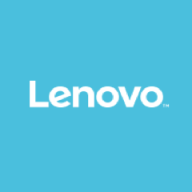

HPE ProLiant DL Servers and Lenovo ThinkSystem Rack Servers are key competitors in the server market. HPE has a slight edge due to its high stability, strong service management, and scalability.
Features: HPE ProLiant DL Servers are known for their platform reliability, lifecycle performance, and service management through iLO. They provide stability and scalability, supporting Hot-Plug design and advanced networking configurations. Lenovo ThinkSystem Rack Servers are reliable and easily integrated with services like XClarity Controller, facilitating efficient management and power usage.
Room for Improvement: HPE ProLiant DL Servers could enhance iLO features, boot times, and cost management. Lenovo ThinkSystem Rack Servers require better integration with blade processors, updated components, and improved GUI.
Ease of Deployment and Customer Service: Both HPE and Lenovo servers support on-premises deployments. HPE offers reliable customer service with variable regional support levels. Lenovo's tech support is capable but needs consistency improvements.
Pricing and ROI: HPE ProLiant DL Servers are pricier due to their stability and reliability, with additional licensing costs for iLO. Lenovo ThinkSystem Rack Servers are often chosen for their competitive pricing and cost-effectiveness.
| Product | Market Share (%) |
|---|---|
| HPE ProLiant DL Servers | 20.6% |
| Lenovo ThinkSystem Rack Servers | 12.9% |
| Other | 66.5% |


| Company Size | Count |
|---|---|
| Small Business | 55 |
| Midsize Enterprise | 28 |
| Large Enterprise | 98 |
| Company Size | Count |
|---|---|
| Small Business | 18 |
| Midsize Enterprise | 3 |
| Large Enterprise | 9 |
HPE ProLiant DL Servers are known for their reliability, scalability, and robust performance. They deliver advanced management capabilities and excel in handling high workloads, offering cost efficiency and versatile customization options suited for diverse enterprise needs.
HPE ProLiant DL Servers feature a user-friendly design that facilitates quick deployment and efficient maintenance. Their advanced iLO technology supports remote management, allowing users to handle server operations efficiently. Users appreciate the system's compatibility with multiple applications and infrastructures, along with robust support services. Despite these strengths, some models have issues like missing front ports, slow boot times, and a reliance on Java for management tasks. Suggestions for improvement include enhanced power monitoring, refined software, better redundancy, and energy-efficient operation. Many look for improved virtualization capabilities and faster processors. Support and documentation inconsistencies are also noted concerns.
What are the key features of HPE ProLiant DL Servers?HPE ProLiant DL Servers are widely implemented in enterprise and educational settings, excelling in virtualization on VMware and Hyper-V platforms. They support databases like Oracle and MongoDB and are essential for high-performance computing and AI projects. These servers are integrated into system environments, supporting rack and hyperconversion setups effectively.
From growing small businesses to enterprise workloads, Lenovo rack servers offer the unmatched value, flexibility and industry-leading efficiency to meet mission-critical demands with legendary quality and reliability.
We monitor all Rack Servers reviews to prevent fraudulent reviews and keep review quality high. We do not post reviews by company employees or direct competitors. We validate each review for authenticity via cross-reference with LinkedIn, and personal follow-up with the reviewer when necessary.